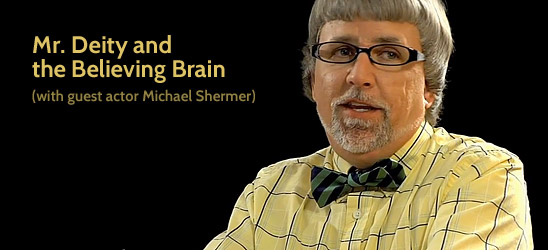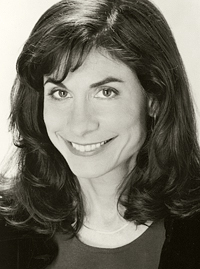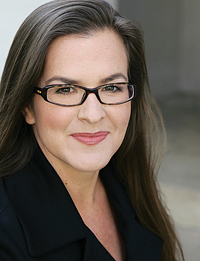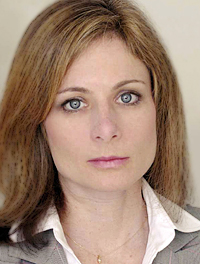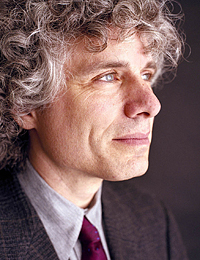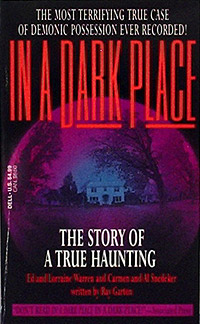In this week’s eSkeptic:
The Latest Episode of Mr. Deity: Mr. Deity and the Believing Brain (with guest actor Michael Shermer)
WATCH THIS EPISODE | DONATE | NEWSLETTER | FACEBOOK | MrDeity.com
Announcing the New Season
of Lectures at Caltech
MARK YOUR CALENDAR! The Skeptics Society is pleased to announce another season of the Skeptics Distinguished Lecture Series at Caltech. This continues the seventeen-year-long series, presenting nearly 300 lectures by some of the most distinguished experts in the world. Unless otherwise stated, all lectures take place in Baxter Lecture Hall, Caltech, Pasadena, CA. Book signings will follow all lectures. First up…
Someone Else’s Twin: The True Story of Babies Switched at Birth
with Dr. Nancy Segal
Sunday, September 11, 2011 at 2 pm
IN THIS FASCINATING STORY, Dr. Nancy Segal, Professor of Psychology at California State University, Fullerton (and herself a twin and an expert on twin research) describes the consequences of unintentional separation of identical twins. She considers not only the effects on separated twins, but the implications for questions concerning identity, familial bonds, nature-nurture, and the law. Based on her extensive research into the psychology of twins and interviews with family members, Dr. Segal explores many questions of universal human significance: How do mothers know who their biological children are? How much does our family contribute to our sense of self? Are we more like the people who raised us or the people we are born to? Dr. Segal also examines custodial decisions concerning children who are the result of donated sperm or eggs by individuals outside the rearing family. She further elucidates the benefits to children from adoption.
Area 51: An Uncensored History of America’s Top Secret Military Base
with Annie Jacobsen
Sunday, October 2, 2011 at 2 pm
IT IS THE MOST FAMOUS MILITARY INSTALLATION IN THE WORLD. And it doesn’t officially exist. Located a mere seventy-five miles outside of Las Vegas, the base has never been acknowledged by the U.S. government. Myths and hypotheses about Area 51 have long abounded, thanks to the intense secrecy enveloping it. Some claim it is home to aliens, underground tunnel systems, and nuclear facilities. Others believe that the lunar landing itself was filmed there. The prevalence of these rumors stems from the fact that no credible insider has ever divulged the truth about his time inside the base. Until now. Los Angeles Times investigative journalist Annie Jacobsen had exclusive access to 19 men who served the base proudly and secretly for decades and are now aged 75–92, and unprecedented access to 55 additional military and intelligence personnel, scientists, pilots, and engineers linked to the secret base. In Area 51, Jacobsen shows us what has really gone on in the Nevada desert, from testing nuclear weapons to building super-secret, supersonic jets to pursuing the War on Terror.
Knocking on Heaven’s Door:
How Physics and Scientific Thinking Illuminate the Universe and the Modern World
with Dr. Lisa Randall
SPECIAL DAY & TIME
Monday, October 10, 2011 at 7:30 pm
FROM ONE OF TIME MAGAZINE’S 100 MOST INFLUENTIAL PEOPLE IN THE WORLD, Harvard University physicist and cosmologist Dr. Lisa Randall presents a rousing defense of the role of science in our lives. The latest developments in physics have the potential to radically revise our understanding of the world: its makeup, its evolution, and the fundamental forces that drive its operation. Knocking on Heaven’s Door is an exhilarating and accessible overview of these developments and an impassioned argument for the significance of science. She examines the role of risk, creativity, uncertainty, beauty, and truth in scientific thinking, along with the nature and goals of the largest machine ever built: the Large Hadron Collider, the enormous particle accelerator below the border of France and Switzerland—as well as recent ideas underlying cosmology and current dark matter experiments, and what they tell us about who we are and where we came from.
The Better Angels of Our Nature:
Why Violence Has Declined
with Dr. Steven Pinker
Sunday, October 23, 2011 at 2 pm
BECKMAN AUDITORIUM
FACED WITH THE CEASELESS STREAM OF NEWS about war, crime, and terrorism, one could easily think we live in the most violent age ever seen. Yet as the Harvard University psychologist and New York Times bestselling author Steven Pinker shows in this startling and engaging new work, just the opposite is true: violence has been diminishing for millennia and we may be living in the most peaceful time in our species’ existence. For most of history, war, slavery, infanticide, child abuse, assassinations, pogroms, gruesome punishments, deadly quarrels, and genocide were ordinary features of life. But today, Pinker shows all these forms of violence have dwindled and are widely condemned. How has this happened? This groundbreaking work continues Pinker’s exploration of the essence of human nature, mixing psychology and history to provide a remarkable picture of an increasingly nonviolent world. The key, he explains, is to understand our intrinsic motives—the inner demons and the better angels—and how changing circumstances have allowed our better angels to prevail.
Followed by…
- Thinking: Fast and Slow
with Dr. Daniel Kahneman
Sunday, November 6, 2011 at 2 pm - The Folly of Fools: The Logic of Deceit and Self-Deception in Human Life
with Dr. Robert Trivers
Sunday, November 13, 2011 at 2 pm - Who’s in Charge?: Free Will and the Science of the Brain
with Dr. Michael Gazzaniga
Sunday, November 20, 2011 at 2 pm - Physics on the Fringe: Smoke Rings, Circlons,
and Alternative Theories of Everything
with Margaret Wertheim
Sunday, December 11, 2011 at 2 pm
Ticket information for Baxter Lecture Hall
Tickets are first come first served at the door. Seating is limited. $8 for Skeptics Society members and the JPL/Caltech community, $10 for nonmembers. Your admission fee is a donation that pays for our lecture expenses.
Ticket information for Beckman Auditorium
$10 Skeptics Society members/Caltech/JPL community; $15 everyone else. Tickets may be purchased in advance through the Caltech ticket office at 626-395-4652 or at the door. Ordering tickets ahead of time is strongly recommended. The Caltech ticket office asks that you do not leave a message. Instead call between 12:00 and 5:00 Monday through Friday.

A Connecticut Haunting
in a Keen Author’s Court
The 2009 film The Haunting in Connecticut is purported to be based on true events. Similarly, there was the 2002 documentary A Haunting in Connecticut (which aired on The Discovery Channel and helped spawn the series A Haunting). These true events have been compiled by author Ray Garton into his book In A Dark Place: The Story of a True Haunting. The shocking tale contains adult elements of a graphic nature, and if true, described a terrifying case of a demonic and ghostly attack on a family. But Garton now says that the allegedly true events weren’t quite what they seemed.
Content Advisory: This episode of MonsterTalk contains adult themes and coarse language.
About this week’s feature article
In this week’s eSkeptic, we present an article from Skeptic magazine’ (volume 1, number 4) in which Kevin Todeschi, the Director of Public Information at the Edgar Cayce Association for Research and Enlightenment, responds to Michael Shermer’s investigation of the A.R.E.’s extraordinary claim regarding proof of ESP (which we published last week in part one of this two-part series). Following Kevin Todeschi’s response, we present a reply from Michael Shermer, Arthur Benjamin and James Randi.
SUBSCRIBE to Skeptic magazine for more great articles like this one.
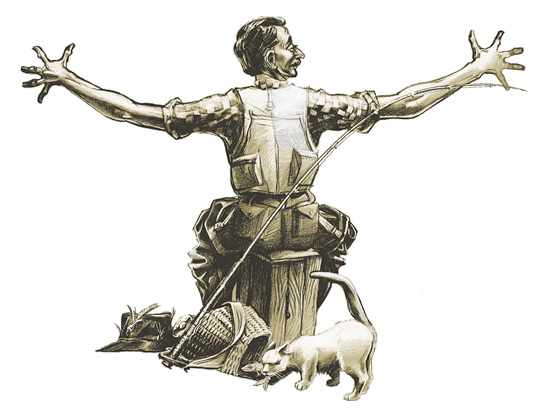
A.R.E. You Sure?
The Edgar Cayce Association
Responds to a Skeptical Critique
by Kevin Todeschi
Dear Dr. Shermer: Thank you for taking the time to visit A.R.E. along with Dr. Clay Drees. Much of the material in your article was correct, and we certainly appreciate the opportunity to be of enough interest to be “investigated” by your society.
It was unfortunate, however, that you did not have the time to investigate us scientifically, preferring instead to be a part of the Virginia Beach tourism group—tens of thousands of inquirers who only have the opportunity to take part in an afternoon visit. Researchers from around the world—skeptics and proponents alike—have been privy to our archives, our historical documentation, and our research simply by request. Should you or Dr. Drees ever have the opportunity to visit us again, we would be delighted to make this information available to you.
The hour-long “ESP demonstration” which we present to the public—and upon which you based your entire investigation—is not intended to substitute for scientific research. Any valid paranormal experiment would require controls, statistically impressive repetitions, the ability to be duplicated elsewhere by additional researchers, and perhaps even a double-blind component. None of these elements are a part of a demonstration that exists simply to familiarize the public with the classic Zener symbols, a basic background in telepathy, and an elementary overview of Edgar Cayce’s ESP.
Our staff should have made it clearer that the demonstration does not take the place of scientific research, nor does ANY score within the experiment mean anything statistically. Results have to be repeated consistently—and measured—in order to satisfy the parameters of valid research.
There were a number of items in your article that need to be corrected. First of all, although it is true that Edgar Cayce stated an individual’s intuitive abilities—abilities which we all possess—could be developed and improved upon, it is not true that these abilities always manifest in the same ways. For example, just because an individual worked for years with intuitive development does not mean that they would excel in one specific telepathy test, such as the Zener symbols. There are many forms of psychic ability: telepathy, clairvoyance, retrocognition, etc., and each of these forms have a multitude of possible expressions. An individual might be able—in statistical analyses exceeding chance—to “see” inside a human body and comment upon certain bodily functions and conditions and yet be unable to “peer” inside an envelope which they held sealed in their hand. Traditional left-brained scientific thinking is not always applicable to an ability that seems to be focused in a nonlinear portion of the brain.
None of the “skeptical researchers” you cited in your article has ever done a cursory investigation of Cayce’s cures and our archives, let alone a “fairly extensive analysis.” If they had, they would have found that Cayce and his staff were decades ahead of their time in keeping records, encouraging patients to fill out repeated questionnaires, even following up with the individuals (and their families) for years after the readings had been given, and continually tracking these individuals and their case histories long after Cayce himself had died. In fact, the material, the background information, and the individual reports consist of more than 100,000 pages and 24 million words. Even a brief investigation would require many weeks of exhaustive study.
You’re correct in your assertion that Cayce used language and terminology oftentimes beyond the easy-comprehension of individuals and more appropriately geared towards physicians, osteopaths, and chiropractors. It is not true, however, that Cayce was a “voracious reader” from which he gleaned his information.
Individuals received readings that frequently needed to be carried out under the guidance of a health-care professional. In the same manner a physician today frequently writes out a prescription that must be filled by a pharmacist—in language oftentimes not understood by the average patient—many of Cayce’s recommendations needed to be performed by a qualified professional. In fact, the Cayce Hospital was built in 1929 as a place where individuals could receive recommended treatments and medical procedures carried out by qualified professionals.
More than 300 books have been written about Edgar Cayce and his work, and some of the most popular were authored by individuals who first arrived in Virginia Beach in order to debunk him. Edgar Cayce’s two sons also wrote a critical account of their father’s work, entitled The Outer Limits of Edgar Cayce’s Power, in which they attempted to analyze why approximately 200 of the nearly 14,000 readings appeared to be wrong—less than 2% of the total. The Association has never tried to pass Cayce’s work off as infallible or to hide any information that was not completely favorable.
There seems to be the general misconception that something truly psychic would need to be 100% accurate or always capable of being measured beyond chance. Unfortunately, this is simply not the case. An analogy might be to look at the work of a professional sports’ enthusiast, say a fisherman. An individual trained in the sport of fishing, with years of experience, and a great deal of knowledge about the activity has a better chance of catching a fish than does the average person. However, every time the individual goes fishing he is not necessarily successful. That does not mean, however, that his “score” in comparison to others over time cannot be measured to exceed random chance. The same is true of an ethical psychic such as an Edgar Cayce. The material exceeds random chance and has a quality that surpasses a jumbled array of “borrowed terminology,” but it is not always exact.
No one would suggest that an investor’s hunches are always accurate, or that a successful businessman’s decisions are always on the mark, or even that a magician’s stage show would always enthral the audience, but when it comes to the manifestation of extended sense perception it appears as though we wish to use a different score card.
Finally, Atlantic University which you mentioned and with which we are affiliated offers approximately 20 courses throughout the year, six that can be taken at any time. The university is licensed by the state to grant a Master’s degree in Transpersonal Studies, it possesses a core group of classes and requirements which must be satisfied by degree candidates, and is designed primarily as an advanced liberal arts learning experience.
Our Association has long been interested in open-minded research. All of our materials, records, and historical documentation are available to the public and may be researched by any serious inquirer. To this end we invite all who are interested to “come and see.”
I only hope that your next exploration to our center will allow time for more serious investigation.
Anecdotes Do Not Make a Science:
The Skeptics Reply
by Michael Shermer, Arthur Benjamin & James Randi
We thank you for taking the time to respond in such a thorough and restrained manner. We realize that an hour-long “ESP demonstration” does not a scientific experiment make, but there is no question that your staff presents it as if it were a scientifically known fact that “we all have ESP” to some degree. In your letter, in fact, you state that these “intuitive abilities” are “abilities which we all possess,” thus stating your support of the “fact” of the existence of supernormal powers. But scientifically speaking, the “facts” of the matter are that there is no positive evidence whatsoever for the existence of any of the psychic abilities you discuss, when they are tested in controlled scientific conditions. Even the pro-paranormalists who do serious responsible research on the matter are now admitting that their entire research program, after over three decades of experiments, has produced nothing statistically significant. The few “blips” in the data that appear, quickly disappear when other independent laboratories try to replicate the experiments. This is one of the beautiful components of the scientific method—its self-correcting nature. For those who are corrected, however, it may not seem so attractive. Parapsychologist Dr. Susan Blackmore, who began her studies in search of psychic phenomena (hoping to get positive results), eventually became a skeptic and now observes that the pro-paranormalists are having to ask entirely new questions because all the old ones have gone unanswered (in the positive). Her intellectual integrity is of the highest order and we might suggest reading her 1986 book, The Adventures of a Parapsychologist, about all the pitfalls she encountered in her research.
(Of course, Mr. Todeschi, if your arguments for the validity of A.R.E. claims are based upon religious, rather than logical, scientific reasoning, many of these arguments may not apply to your response. In that case we are arguing about a preferred belief system rather than a provable—or disprovable—claim).
Your analogy with the professional sports’ enthusiast is interesting because in this case, unlike that of psychic phenomena, valid data exists for the ability to improve with practice. We would be willing to offer a $10,000 challenge that the average person possesses as much psychic ability as A.R.E.’s most experienced psychic—which we suspect would be none! This would be a truly unique “sporting” event where we predict that both competitors will, over time and many trials, be equally bad. You would select your champion and we would select our champion (anyone off the street would do), and we predict that not only would our participant do consistently as well (or bad) as your participant, but neither one of them would get any better, no matter how much they might practice.
This “challenge” is not meant to be scornful or condescending. We only want to make the point that under controlled conditions over many repetitions, there has never been a proper and statistically significant finding of psychic power that has been duplicated later, or duplicated in another independent laboratory. What A.R.E. has are anecdotes about Edgar Cayce, and anecdotes do not make a science. Anecdotes are stories related by participants: “I tried this blend of herbs and I felt much better later.” Or: “I went to this chiropractor and my eyesight became much better.” And so on.
Your sports analogy is applicable here. The fact is, virtually all of the reports of success by athletes in the use of techniques, gadgets, styles, training methods, etc. to improve their skill, are anecdotes. A fisherman tried a yellow fly with green specks and he caught a 14-pound fish. A cyclist tried a vitamin-B injection and he won the race that day. You hear it all the time. But rarely are these things really tested, where a dozen fishermen used the yellow fly with green specks, and another dozen used another type of fly, then the two were compared, and all other conditions were held constant, and so forth.
Likewise, the “more than 300 books” that have been written about Cayce, some of them apparently by former skeptics who are now converts, do not count for anything other than another form of anecdote. If the skeptic’s skeptic, Martin Gardner, were to suddenly declare his belief in the psychic powers of Edgar Cayce and author a biography on the man, while it would certainly get our attention, it would not count one iota scientifically. Gardner, or anyone else, would still be required to produce the statistically significant data.
The simple fact is that these 14,000 stories, as impressive as they may seem, do not make a science. Ten anecdotes are no better than one anecdote, and a hundred anecdotes are no better than ten. Actually, a hundred anecdotes are worse than ten, if you do not also have statistically significant data comparing groups of individuals who received different treatments, “duplicated elsewhere by additional researchers, and perhaps even a double-blind component,” as you correctly stated in your letter. It is a fact, Mr. Todeschi, that NO results arrived at WITHOUT double-blind means can be adequate. In the case of old data—and the reputation of A.R.E. rests almost entirely on old data—those techniques often cannot be applied, obviously. But if your A.R.E. operators are able to NOW produce data, we can show you how a double-blind system can be applied. We await, with interest, your response to this suggestion.
Anecdotes are only useful to illustrate a phenomenon that already has been proven scientifically, in this case, statistically. If you do not have this, and as far as we can tell you do not, then all those anecdotes indicate is that there is something else going on that has absolutely nothing to do with psychic diagnosis or healing. In this case, the 14,000 “readings” by Edgar Cayce are simply 14,000 anecdotes. To repeat the six-word phrase that should be memorized by every paranormalist and skeptic (it is difficult for all of us to understand), and repeated every night before bed:
ANECDOTES DO NOT MAKE A SCIENCE.
Skeptical perspectives on psychics, ESP and other delusions…
-
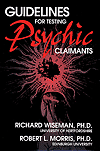 Guidelines for Testing Psychic Claimants
Guidelines for Testing Psychic Claimants
by Richard Wiseman and Robert L. Morris
-
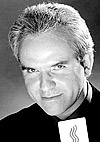 Mind Power: Fact, Fiction and Fakery
Mind Power: Fact, Fiction and Fakery
by Ian Rowland
-
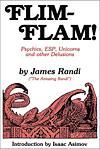 Flim Flam! Psychics, ESP, Unicorns
Flim Flam! Psychics, ESP, Unicorns
and other Delusions
by James Randi


